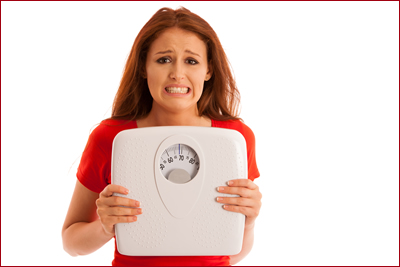A Few Factors Blocking Weight Loss

Weight loss is not always straightforward. Some people have trouble making any progress at all despite valiant efforts, while others can get off to a good start and stall somewhere down the road without being able to figure out why.
Here are a few common barriers to your weight loss efforts.
Your Gut Health Is Interfering
Emerging research is uncovering just how important your microbiome (the collection of bacteria in your gut) is for your health and potentially for your weight. A review published recently in Preventive Nutrition and Food Science found that probiotics and prebiotics may help prevent weight gain. It also reported that people with less diversity in their gut microbiomes were more likely to have a higher body mass index (BMI).
Begin by increasing the prebiotics in your diet. Prebiotics are fibre that feeds the good bacteria in your gut. You could be taking all the probiotics, but if you don't feed this good bacteria, it can't proliferate and overtake the bad bacteria in your gut. Increase prebiotics in your diet by focusing on fruit and vegetable intake. Embrace variety (green beans one day, kale the next, and then a tomato salad) to give your gut a range of prebiotics that will keep it happy.
You're Getting Older and Losing Muscle
As women hit menopause and estrogen levels begin to dip, they lose muscle as they age. In fact, muscle mass decreases 3 to 8 percent every decade after age 30, according to research. That's a major factor because muscle burns more calories than fat.
Post-menopausal women are more likely to gain body fat and need fewer calories as they get older. What's more, natural changes in fat tissue that come with aging can prompt the body to gain weight.
You can't control the clock, but you can control your health habits. People of any age can lose weight and keep it off, as long as they create the habits that are necessary and have a plan in place for any slips in behaviors that can cause weight gain. Effective behaviours include making nutrient-rich foods the basis of your diet, limiting empty calories (such as processed and high-sugar foods), and adding resistance training into your weekly routine to rebuild lost muscle.
Your Medicine Cabinet Is to Blame
Some medications cause weight gain or get in the way of your efforts to lose weight. Among them: insulin to treat diabetes, certain antipsychotics or antidepressants, some epilepsy therapies, steroids, and blood-pressure-lowering meds like beta blockers. These may cause weight gain because they mess with your metabolism in some way, alter your appetite, cause water retention, or contribute to fatigue, making you less active.
If you or your doctor notices that you've unintentionally gained weight, talk about it. Don't stop taking your meds just because you've gained weight. In some cases, your doctor may be able to switch you to a different medication or adjust your dose.
You Skip Meals, Then End Up Overeating
In an effort to cut calories, it's tempting to go through the day trying to eat as little as possible and even skip meals. But if you do this, your body will push you to eat - and this deprivation can backfire. If you restrict yourself all day, your body's protective mechanisms will kick in - the ones that drive you to get food. As a result, it's not surprising if you eat an entire bag of cookies quickly late at night.
It's best to eat on a predictable food schedule. If you eat regularly throughout the day, your body will be able to anticipate that you're going to provide adequate nutrition for it. What's more, even if you're trying to lose weight, make a plan for how you're going to include a variety of foods into your day so you don't feel deprived. For instance, can you have a biscuit after lunch? Will you let yourself have a scoop of ice cream or gelato when you go out with the kids on Saturday?

